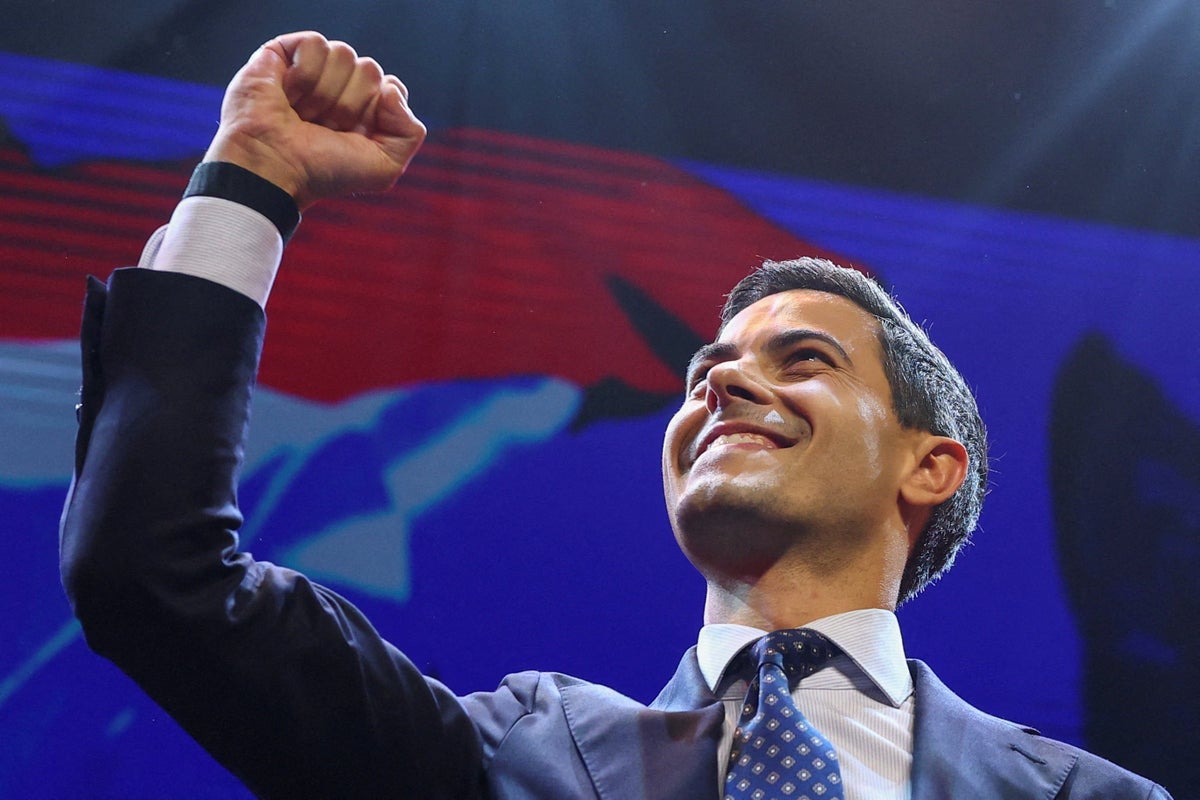
The centrist D66 party has made substantial inroads in the Dutch elections, positioning it to lead the next government’s formation and make its leader, 38-year-old Rob Jetten, the country’s youngest prime minister.
With 98 per cent of ballots tallied early on Thursday, both D66 and Geert Wilders’ far-right Freedom Party (PVV) were projected to secure 26 seats each in the 150-member lower house.
D66 held a slender lead of 2,300 votes from approximately 10 million cast, with counting resuming on Thursday morning.
D66 notably almost tripled its seat count, marking the election’s largest gains, contrasting sharply with Mr Wilders’ party, which declined significantly from its 2023 record.
While initial exit polls suggested a narrow D66 victory, later counting showed a marginally stronger outcome for the anti-Islam populist faction.
This shift, however, is not expected to alter the next government coalition’s composition.
All major mainstream parties have ruled out governing with Wilders after he brought down the last coalition led by his PVV, leaving him no viable path to a majority.
The result instead seems to open a path for D66 leader Rob Jetten to form a government as the youngest ever prime minister of the Netherlands.
But on Thursday, Wilders insisted he would take the lead if the PVV ultimately came out on top.
“As long as it’s not 100 per cent clear, D66 can’t take the lead. We will do everything we can to prevent that,” he said in a post on X.
Wilders on Wednesday evening had said he was disappointed that his party had lost seats and was unlikely to be in the next government.
Cheers and chants of “Yes, we can” broke out at the D66 election night celebration as the crowd waved Dutch flags.
“We’ve shown not only to the Netherlands, but also to the world that it is possible to beat populist and extreme-right movements,” Jetten told the crowd.
“Millions of Dutch people today turned a page and said farewell to the politics of negativity, of hate, of endless ‘no we can’t’.”
The popularity of 38-year-old Jetten surged in the past month, as he campaigned on a promise to resolve a housing shortage, invest in education, and tackle immigration concerns.
Wilders, one of Europe’s longest-serving populist leaders, is known for his anti-Islam stance and lives under constant protection due to death threats.
He had proposed denying all asylum requests – which would violate EU treaties – sending male Ukrainian refugees back to Ukraine, and halting development aid in order to finance energy and healthcare.
Wilders led his party to a stunning first-place finish in the 2023 election and formed an all-conservative coalition, although his partners refused to endorse him as prime minister.
He brought the government down in June over its refusal to adopt his hardline measures.
The Dutch election was seen as a test of whether the far-right can expand its reach or whether it has peaked in parts of Europe. The outcome may suggest there are limits to its enduring appeal.
With 76 seats needed to form a governing coalition in the Netherlands’ parliament, at least four parties will be required. One scenario is a pact including D66, the conservative Christian Democrats, the centre-right VVD, and the Greens-Labour party.
However, building stable coalitions is tough and talks are expected to take months.
